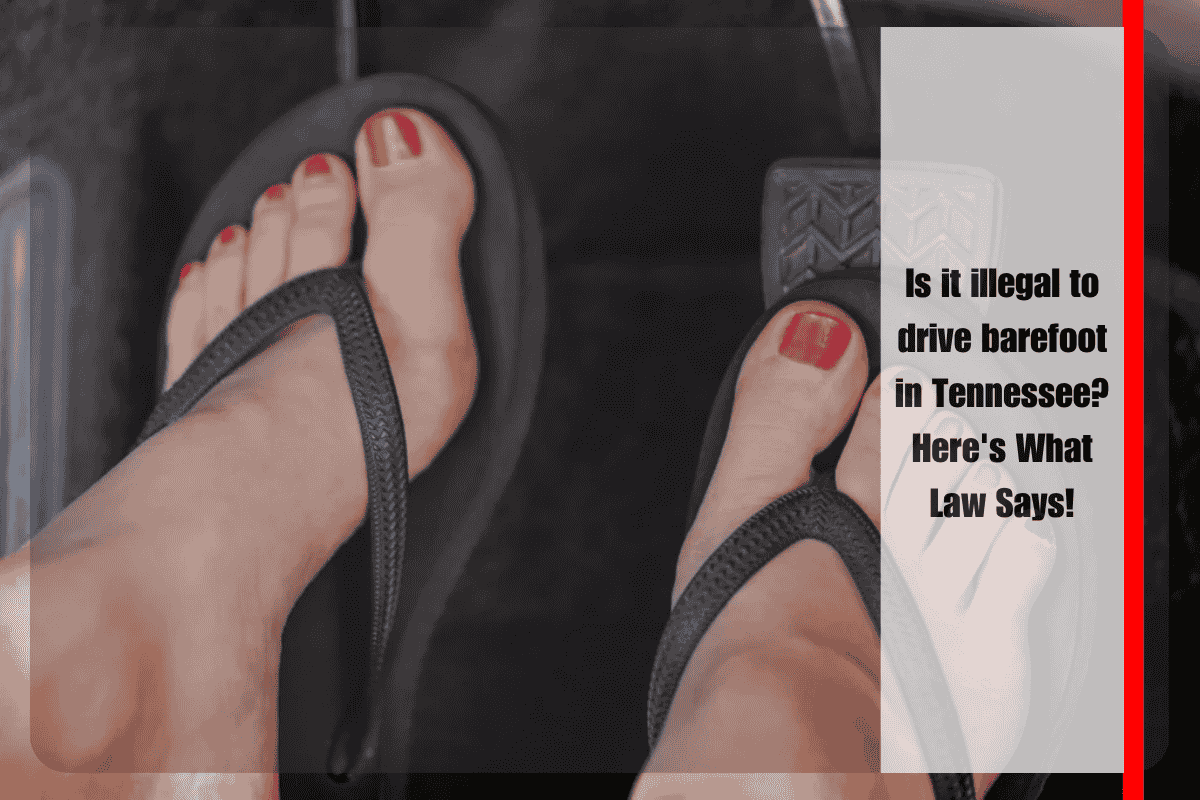You might have heard the common myth that driving barefoot is illegal. In reality, driving barefoot in Tennessee is completely legal. There is no Tennessee state law that prohibits motorists from driving a vehicle without shoes, sandals, or other forms of footwear. In fact, this is true for nearly every state in the U.S. — despite what people often assume or repeat. So if you’re in Tennessee and wondering whether you can legally drive home from the lake or beach without slipping on your shoes, the answer is yes.
That said, just because barefoot driving isn’t illegal doesn’t necessarily mean it’s always safe or advisable. Tennessee law allows it, but with some important caveats. While the law doesn’t require drivers to wear shoes, all drivers are expected to operate their vehicles in a safe and controlled manner. If going barefoot impairs your ability to safely control the pedals — for example, if your bare foot slips off the brake or accelerator — and causes or contributes to an accident, a law enforcement officer could cite you for reckless or careless driving under other statutes.
Additionally, while the Tennessee Department of Safety and Homeland Security doesn’t specifically advise against barefoot driving, many driving safety organizations, including the National Highway Traffic Safety Administration (NHTSA), recommend wearing appropriate footwear when behind the wheel. Driving barefoot may reduce your grip on the pedals, especially if your feet are wet or sweaty, and can delay your reaction time in emergencies.
Likewise, wearing inappropriate footwear can also be risky. Flip-flops, high heels, or heavy boots can interfere with pedal control just as much — if not more — than being barefoot. In that sense, going barefoot could sometimes be safer than wearing poorly designed or loose-fitting footwear that can get stuck underneath the pedals or prevent full pressure on the brake. Courts generally weigh the context: if an accident occurs and barefoot driving is determined to be a contributing factor, the driver may still be held partially at fault.
It’s also important to consider local regulations. While Tennessee state law permits barefoot driving, some municipalities or counties might have their own laws or codes relating to driver safety. Though such local ordinances are uncommon, they can exist, and violating them—even unknowingly—could lead to fines or warnings. So, if you’re in a more rural or locally governed area, it’s worth checking with local law enforcement or town ordinances to confirm the rules.
Insurance companies also play a role in whether barefoot driving is considered a problem. Some insurers may argue that barefoot driving contributed to a crash and use that fact to deny a claim or reduce compensation. While this is rare and hard to prove, it’s another reason drivers might think twice about ditching their shoes.
It is perfectly legal to drive barefoot in Tennessee, but safety, local ordinances, and the potential for legal liability in an accident are all things to keep in mind. If you’re going to drive barefoot, do so cautiously — and ensure you can easily control your vehicle at all times.
Sources
[1] https://labrumlawfirm.com/blog/is-it-legal-to-drive-barefoot-in-tennessee
[2] https://www.warfornash.com/post/is-it-illegal-to-drive-barefoot-tennessee
[3] https://francisinjury.com/blog/is-it-illegal-to-drive-barefoot/
[4] https://www.superlawyers.com/resources/traffic-violations/driving-barefoot-is-it-legal/
[5] https://www.findlaw.com/legalblogs/law-and-life/illegal-to-drive-barefoot/












